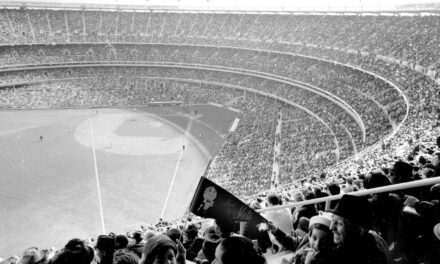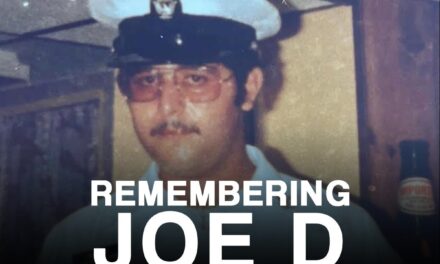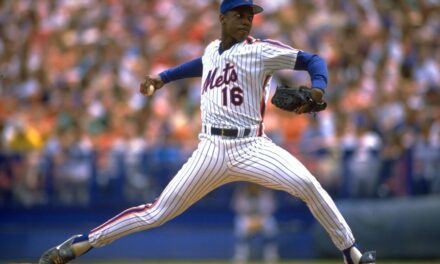
Compared to the other 30 franchises, the Mets have rarely called upon the services of a rookie starting pitcher over the past 20 seasons, needing someone to take the ball in their major league debut a mere 21 times — only six teams have done it more infrequently.
You could argue that’s a good thing. Fewer rookies means more established arms, and of those 21 the Mets have cranked out quite a group.
For completionist’s sake, let’s go back in time and review those outings, and what became of the fledgling starters. We’ll begin with the nine who made their debuts in the 2000s and tackle the 12 from the 2010s in another installment.
Grant Roberts (July 27, 2000)
The Player: Roberts, an 11th-round draft pick in 1995, rose through the system quite linearly, save for elbow surgery that cost him the first half of 1998. He entered that season as the organization’s top prospect and the 29th-best in all of baseball, per Baseball America, and projected to be a hard-throwing (for the time period) future fixture in the Mets’ rotation.
The Game: Amid rumors that he would be involved in a deadline trade in 2000, likely in failed attempts to secure Barry Larkin or Curt Schilling, Roberts was called up to make his debut in the first game of a doubleheader against the Montreal Expos, perhaps as a showcase to other teams.
Safe to say, no one was impressed. The noon start on a Thursday at Shea turned into a nightmare for Roberts, who faced 14 batters and only recorded four outs. Despite being down 7-0 in the second, the Mets rallied back and took the lead on Matt Franco‘s single in the eighth to win 9-8.
The Future: July 27 was ultimately Roberts’ only major league start, though he would see sporadic action over the next four seasons. Converted to a full-time reliever in May of 2001, he pitched well in 2002 before missing two months due to a rotator cuff injury.
When he returned, Roberts was met with controversy after a Newsday report claimed that he was at the center of widespread drug use within the organization. The cover photo, depicting Roberts smoking marijuana three years earlier, proved the exposé to be more than a claim. The image had been sold by an ex-girlfriend, though extortion charges were later dropped.
Character issues long stood in the way between Roberts and major league success, and the last straw was a steroid suspension while in the minor leagues in 2005. His career ended after nine games in the Yankees system later that year.
(My personal favorite Roberts story — minutes away from undergoing surgery for another rotator cuff injury in 2004, the Mets called to tell him he had been outrighted to Triple-A and the operation was called off because the team believed he could still pitch. “I had the IV in me,” he said.)
Dicky Gonzalez (May 1, 2002)
The Player: Gonzalez, a native of Puerto Rico, was just 17 when the Mets drafted him in the 16th round in 1996. He was solid at each step, posting a 3.45 ERA over his first five seasons and making it to Triple-A for a spot start as a 20-year-old in 1999.
The Game: Gonzalez was recalled to replace Al Leiter, who had gone on the disabled list with a strained tendon in his elbow. Opposing former Met Octavio Dotel of the Houston Astros, the outing was not awful, if unspectacular. Despite reaching 97 pitches with one out in the fifth inning, Gonzalez allowed only three runs while striking out three. The Mets took the lead in the seventh on a grand slam from Robin Ventura and won, 7-5.
The Future: Gonzalez remained in the rotation to make six more starts, though he owned a 6.10 ERA when he was moved to the bullpen in mid-June. He returned to Triple-A Norfolk but was recalled when rosters expanded in September, making four appearances down the stretch.
After making one start for Norfolk in 2002, the Mets dipped into their rotation depth to deal both Gonzalez and Bruce Chen, along with two minor leaguers, to the Expos for relief help in Scott Strickland and a pair of farmhands. Strickland was reliable out of the bullpen for the Mets in 2002 and 2003 before needing Tommy John surgery, while Gonzalez spent the entirety of those seasons in Triple-A with the Expos and Boston Red Sox.
Save for four appearances with the Tampa Bay Devil Rays in 2004, the rest of his career was spent in Japan, where he pitched in over 140 games through 2013.

Jason Roach (June 14, 2003)
The Player: Though I take pride in remembering obscure Mets since the turn of the 21st century, I had never been aware of Roach until beginning the project that was this article. He was the organization’s 20th-round pick in 1997, though he was a corner infielder at the time and converted to a pitcher in 2000. Roach was pretty good at his new trade, rising through the minors quickly, though the late start meant he was 27 by the time he reached the major leagues.
The Game: After leaving his previous start in the second inning with elbow discomfort, Tom Glavine was replaced in the rotation by Roach as the Mets played the middle game of their first ever series in Anaheim against the Angels. In Jose Reyes‘ fifth career game (and two days after GM Steve Phillips was fired), Roach was not up to the task, as he tied Bill Pulsipher‘s franchise record by allowing seven earned runs in his debut. He did not strike out any of the 17 batters he faced over three innings.
The Future: Roach is improbably the answer to two obscure trivia questions, the first being that he remains the only pitcher in franchise history to make his major league debut as a starter in an American League ballpark. The second: seven players have a pristine 1.000 batting average for their Mets career, but only one did it over multiple at-bats. Of course it was Roach, the former infielder, who went 2-for-2 in his only other major league appearance, a start at Shea on July 8, 2003.
He was designated for assignment in September and bounced around in the Devil Rays and Pittsburgh Pirates organizations, last playing in 2007.
Aaron Heilman (June 26, 2003)
The Player: Prior to the mid-2010s wave of power arms to debut with the Mets, few pitchers garnered as much minor league fanfare as Heilman, who was the 18th-overall pick in 2001 out of Notre Dame. He was in Triple-A by his second professional season and was a top-50 prospect at the time of his promotion.
The Game: After being passed over for a start in favor of Roach, the Mets brought Heilman to the major leagues 12 days later after Mike Bacsik failed to adequately fill the void left by an injured Pedro Astacio. In his debut against another highly-touted rookie, Dontrelle Willis of the Florida Marlins, at Shea, Heilman was strong, allowing just one earned run over six innings. Four unearned runs scored as well, however, and the Mets lost 6-1.
The Future: Abysmal over his first 25 major league starts, aside from a one-hit shutout in April of 2005, Heilman became a full-time reliever that May and became a perpetual relief arm for the Mets from 2005-2008. Though he is remembered infamously for allowing the go-ahead runs in Game 7 of the 2006 NLCS, Heilman still sits tied for tenth (with Dwight Gooden) on the franchise games pitched list.
He was traded to the Seattle Mariners in the J.J. Putz blockbuster after the 2008 season and pitched for the Arizona Diamondbacks and Chicago Cubs before calling it a career.

Tyler Yates (April 9, 2004)
The Player: Yates and Mark Guthrie were the fruits of David Justice‘s labor in a Mets uniform, which consisted of one week in December of 2001. On track to debut in the majors in 2002, Yates, a native of Hawaii, needed Tommy John surgery. He was clocked at 100 mph out of the bullpen before making the unusual transition to the rotation in 2003.
The Game: Despite carrying no major league experience, Yates cracked the Opening Day roster in 2004 after a strong spring and made his debut against the Expos in Puerto Rico. He was excellent, becoming the third pitcher in team history to work at least six innings and allow no runs in his first start (two others have done it since). Todd Zeile‘s RBI double in the 11th inning was the difference in the 3-2 win.
The Future: Though he remained in the rotation through April, Yates bounced between New York and Norfolk for the rest of the season and was moved back to the bullpen for 11 appearances in September. Poised to play a role in 2005, he needed rotator cuff surgery in February, missed the entire season, and was non-tendered in December.
Yates recovered to make 218 appearances over the next four seasons with the Pirates and Atlanta Braves.
Brian Bannister (April 5, 2006)
The Player: Bannister, the son of longtime starter Floyd Bannister, rose through the system quickly after being selected in the seventh round in 2003. After putting up a 2.74 ERA between Double- and Triple-A in 2005, he was ranked as the sixth-best prospect in the organization by Baseball America.
The Game: Though he was named the fifth starter in the opening day rotation, minor injuries to Pedro Martinez and Victor Zambrano at the end of spring training forced Bannister into action for the second game of the season, at Shea against the Washington Nationals. He was strong, tossing five scoreless innings before allowing a three-run home run in the sixth.
Bannister left with a one-run lead but Billy Wagner, in his second outing as a Met, allowed a leadoff home run to Ryan Zimmerman. Jorge Julio allowed five runs in the top of the tenth inning and the Mets lost 9-5.
The Future: Bannister was excellent in April, recording a 2.89 ERA in five starts. He would not pitch in the majors again until August, however, after straining his hamstring running the bases on April 26. The Mets moved Bannister to the Kansas City Royals in December for reliever Ambiorix Burgos, who pitched in 17 games in 2007. Bannister made 108 starts for the Royals over the next four seasons and has since held various roles as a coach, scout, and analyst. He is currently the Director of Pitching for the San Francisco Giants.
Alay Soler (May 24, 2006)
The Player: The Mets signed Soler to a three-year major league contract in the summer of 2004 after he defected from Cuba a year prior. Though the plan was to take it slow, Soler did not even pitch in the minor leagues until 2006 as he dealt with a visa issue. Once underway, he rocketed from Class-A St. Lucie to Double-A Binghamton to the major leagues in a span of two months.
The Game: Following the injury to Bannister and poor performances of Jose Lima and Geremi Gonzalez, the Mets turned to Soler to try and patch up the fifth starter role. He took the mound against the Philadelphia Phillies at Shea and held them to three runs over six innings, striking out five. David Wright drove in Carlos Beltran (who hit a walk-off home run in the 16th inning the night before) in the seventh inning to seal the 5-4 win.
The Future: Soler was gifted a compatriot on the day of his debut when the Mets acquired Orlando Hernandez from the Diamondbacks, the team that Soler would throw a two-hit shutout against on June 10. His eight starts in 2006 were the extent of his major league career, as the Mets released him the following March with one year left on his contract.

Mike Pelfrey (July 8, 2006)
The Player: The 6-foot-7 behemoth known as “Big Pelf” needed very little time to establish himself after the Mets selected him ninth overall in 2005. He didn’t sign until the next January but made only 16 minor league starts before filling in for the ever-injured Pedro Martinez in the majors.
The game: Not unlike the situation that led to Roach making his debut before Heilman, Pelfrey got his shot after Soler tested the waters a little over a month earlier. Facing the Marlins, Pelfrey worked five innings of three-run ball to earn the win, becoming the first Met to end up in that column in his debut since Masato Yoshii in 1998. The offense scored a season-high 17 runs, including eight against Jason Vargas.
The future: Pelfrey returned to the minors following a start on August 1, but he was a fixture in the rotation by 2007 and remained there through 2011. After Tommy John surgery wiped out his 2012 after three games, Pelfrey landed with the Minnesota Twins and also pitched with the Detroit Tigers and Chicago White Sox, retiring after 2017.
Though his career was no failure, his Mets tenure was defined by a lack of consistency. He was reliable, though, as his 149 starts are seventh-most for the team since 1990
Jon Niese (September 2, 2008)
The Player: Picked six rounds after Pelfrey in 2005, Niese joined him among the Mets’ top pitching prospects of the mid-2000s. The left-hander from Ohio traversed Double- and Triple-A in 2008, leading to his big league debut when rosters expanded in September.
The Game: Replacing the injured John Maine, Niese took the mound in Milwaukee against the Brewers. He struggled, though, failing to record an out in the fourth inning and allowing five runs on seven hits. Niese was bailed out when Endy Chavez hit a go-ahead sacrifice fly in the top of the tenth inning.
The Future: Niese tossed eight scoreless innings in his second start, against the Braves. After a forgettable 2009 that saw him frequently move up and down between the majors and Triple-A and ended with a hamstring tear, Niese became a longstanding fixture in the Mets’ rotation, making 169 starts from 2010-2015.
He was traded to the Pirates after the 2015 season for Neil Walker and was reacquired at the 2016 deadline for Antonio Bastardo. Despite having signed minor league deals with three organizations, Niese has not made it back to the majors since.















